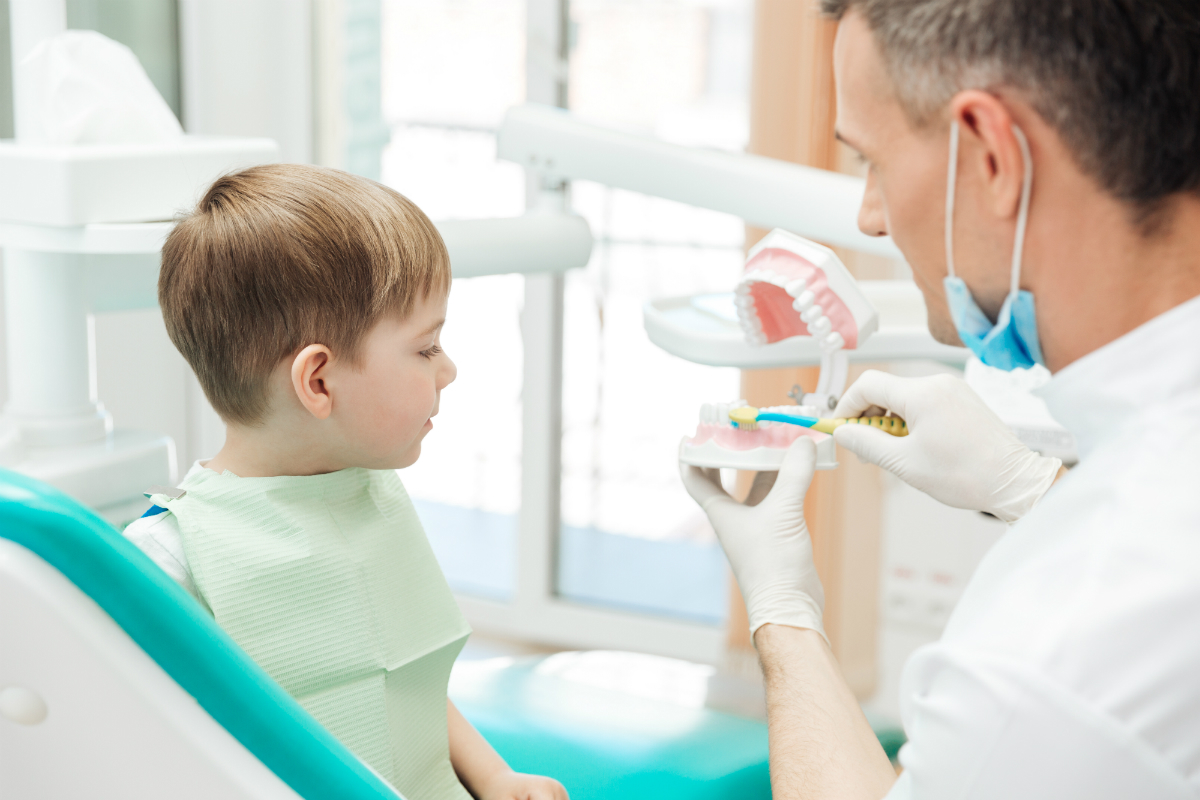What are the Cost of Pediatric Dentist?
In this article, we will explore the significance of pediatric dentistry, the common services offered, the importance of preventive care, and what parents should look for in a pediatric dentist. When it comes to the dental health of children, the expertise of qualified Pediatric Dentist in Dubai is invaluable. Pediatric dentists specialize in providing comprehensive dental care for infants, children, and adolescents. Their training includes not only dentistry but also child psychology, enabling them to address the unique needs of young patients effectively.
The Importance of Pediatric Dentistry
Specialized Training for Children
Pediatric dentists undergo additional training that focuses on the growth and development of children's teeth. This specialized education equips them to handle a range of dental issues specific to children, from infancy through adolescence. The training also involves understanding the emotional and behavioral needs of young patients, enabling them to provide a comforting experience.
Building a Foundation for Oral Health
Establishing a relationship with a pediatric dentist at an early age can foster positive attitudes toward dental care. Regular visits help children understand the importance of oral hygiene, ensuring they grow up with healthy habits. This early foundation sets the stage for lifelong dental health and can significantly reduce the need for more extensive treatments later.

Common Services Offered by Pediatric Dentists
Routine Check-Ups
Regular dental check-ups are crucial to monitor a child's dental health. During these visits, a pediatric dentist will assess the child's teeth, gums, and soft tissues for any signs of problems. This proactive approach enables early intervention, which is essential in preventing issues from escalating into more serious conditions.
Preventive Care
Preventive services form the backbone of pediatric dentistry. These services include:
- Dental Cleanings: Professional cleanings help remove plaque and tartar buildup that children often cannot effectively remove with regular brushing.
- Fluoride Treatments: Fluoride treatments strengthen tooth enamel and help prevent cavities.
- Sealants: Dental sealants are applied to the chewing surfaces of back teeth to protect against decay.
These preventive measures are not only essential for maintaining oral health but also help in minimizing future dental problems, making dental visits less frequent and less stress-inducing for children.
Diagnosis and Treatment of Dental Issues
Pediatric dentists are trained to diagnose and treat various dental problems, including cavities, gum disease, and misalignment. Treatments may involve restorative procedures like fillings, crowns, and extractions. The approach taken with children often differs from that of adults, focusing on making the experience as comfortable and child-friendly as possible.
Guidance on Oral Hygiene
Parents often wonder how to instill good oral hygiene habits in their children. Pediatric dentists provide valuable advice tailored to the child's age and developmental stage. This may include guidance on brushing techniques, the importance of flossing, and dietary recommendations that promote dental health.
Importance of Preventive Care
Reducing Future Dental Issues
Preventive care is a core aspect of pediatric dentistry. By focusing on prevention, pediatric dentists can significantly reduce the incidence of dental problems. Regular check-ups allow for the identification of potential issues before they become serious, ultimately resulting in healthier teeth and gums.
Education for Parents and Children
A significant part of pediatric dentistry involves educating both parents and children about oral health. Pediatric dentists take the time to explain why regular brushing and flossing are important, making it easier for parents to reinforce these habits at home.
Creating a Positive Experience
Pediatric dentists aim to create a positive dental experience that can influence a child's perception of dental care for years to come. By incorporating playful elements, child-friendly language, and a gentle demeanor, they can help reduce anxiety associated with dental visits.
Choosing the Right Pediatric Dentist
Qualifications and Experience
When selecting a pediatric dentist, it's crucial to consider their qualifications and experience. Look for a dentist who holds a specialization in pediatric dentistry and has experience working with children of various ages. This ensures that your child receives the best possible care tailored to their specific needs.
Office Environment
The dental office environment should be welcoming and designed with children in mind. A child-friendly ambiance can significantly ease anxiety. Look for an office with engaging decorations, toys, and a comfortable waiting area.
Communication Style
Effective communication is vital in pediatric dentistry. The dentist should be able to explain procedures in a way that is understandable for both parents and children. A good pediatric dentist will also listen to your concerns and answer your questions thoroughly, making you feel involved in your child’s dental care.
FAQ's
What age should my child see a pediatric dentist?
It’s recommended that a child should see a pediatric dentist by their first birthday or within six months after their first tooth erupts. Early visits can help establish a preventive care routine and address any concerns.
How can I help my child prepare for their first dental visit?
Prepare your child by reading books about dental visits and discussing what to expect in a positive way. Role-play brushing and visiting the dentist to make them feel more comfortable.
What should I do if my child is afraid of the dentist?
If your child expresses fear of the dentist, talk openly about their feelings. Choose a pediatric dentist known for their gentle approach and expertise in managing children’s anxiety during dental procedures.
How often should my child visit the dentist?
Most dental professionals recommend that children should have dental check-ups every six months. However, a pediatric dentist may suggest a different schedule based on your child's specific needs.
Conclusion
In conclusion, visiting a Pediatric Dentist is a critical step in safeguarding your child's dental health. With specialized training, a focus on preventive care, and an understanding of children's unique needs, pediatric dentists play an essential role in promoting lifelong oral health habits. By choosing the right pediatric dentist and embracing regular dental visits, you are ensuring that your child can enjoy a healthy, happy smile well into adulthood.